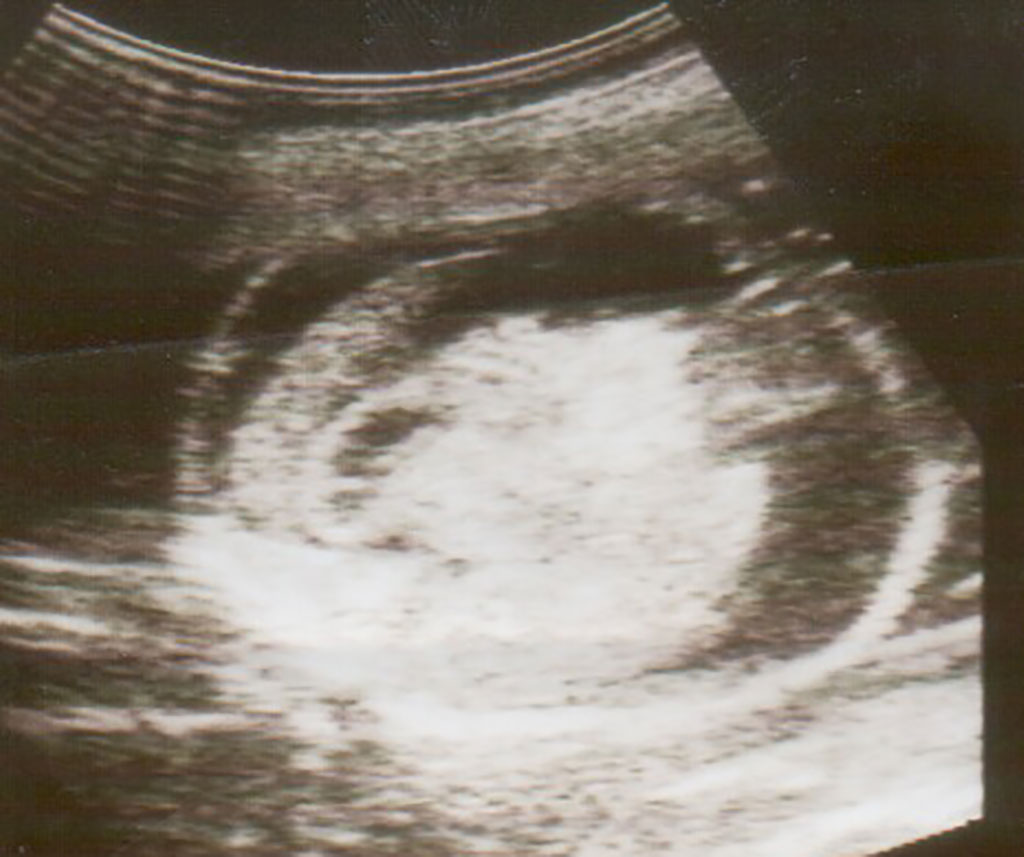Exome Sequencing Identifies Genetic Loci Linked to the Fetal Syndrome Nonimmune Hydrops Fetalis
By LabMedica International staff writers
Posted on 19 Oct 2020
An exome sequencing technique was used to identify genetic loci linked to development of about 30% of cases of nonimmune hydrops fetalis (NIHF).Posted on 19 Oct 2020
Hydrops fetalis is a condition in the fetus characterized by an accumulation of fluid, or edema, in at least two fetal compartments. Locations can include the subcutaneous tissue on the scalp, the pleura (pleural effusion), the pericardium (pericardial effusion), and the abdomen (ascites). NHIF is actually a prenatal form of heart failure, in which the heart is unable to satisfy demand (in most cases abnormally high) for blood flow. This occurs when the fetal heart needs to pump a much greater volume of blood to deliver the same amount of oxygen. The increased demand for cardiac output leads to heart failure, and corresponding edema. NHIF has numerous genetic causes; the extent to which exome sequencing can aid in its diagnosis is unclear.

Image: Ultrasound scan of fetus showing hydrops fetalis (Photo courtesy of Wikimedia Commons)
To determine the efficacy of exome sequencing for diagnosing NHIF, investigators at the University of California, San Francisco (USA) used the procedure to evaluate a series of 127 consecutive unexplained cases of NIHF that were defined by the presence of fetal ascites, pleural or pericardial effusions, skin edema, cystic hygroma, increased nuchal translucency, or a combination of these conditions.
Results identified diagnostic genetic variants in 37 of the 127 cases (29%). These included those for disorders affecting the RAS–MAPK cell-signaling pathway (known as RASopathies) (30% of the genetic diagnoses); inborn errors of metabolism and musculoskeletal disorders (11% each); lymphatic, neurodevelopmental, cardiovascular, and hematologic disorders (8% each); and others. Prognoses ranged from a relatively mild outcome to death during the perinatal period. Overall, 68% of the cases (25 of 37) with diagnostic variants were autosomal dominant (of which 12% were inherited and 88% were de novo), 27% (10 of 37) were autosomal recessive (of which 95% were inherited and 5% were de novo), one was inherited X-linked recessive, and one was of uncertain inheritance.
First author Dr. Teresa Sparks, assistant professor of obstetrics, gynecology, and reproductive sciences at the University of California, San Francisco, said, "The cause of most cases of NIHF is not identified with standard testing, but when we apply exome sequencing, we find a genetic diagnosis in nearly 30% of cases of previously unknown cause. There is a very wide range in genetic diagnoses underlying NIHF, and identifying the diagnosis is essential for families and healthcare providers. With advanced genetic testing, there is much more we can discover for families to help them understand the situation, for obstetricians and neonatologists to better take care of the pregnancy and anticipate the needs of the newborn, and ultimately to guide the development of novel prenatal management strategies such as in-utero therapies to improve health outcomes over the long term."
The NHIF exome sequencing study was published in the October 7, 2020, online edition of The New England Journal of Medicine.
Related Links:
University of California, San Francisco













